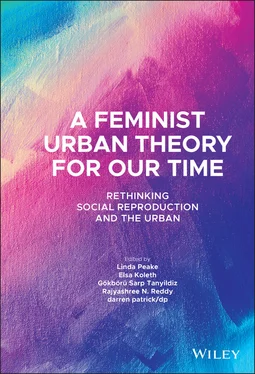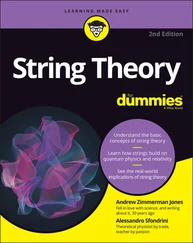52 34
53 35
54 36
55 37
56 38
57 39
58 40
59 41
60 42
61 43
62 44
63 45
64 46
65 47
66 48
67 49
68 50
69 51
70 52
71 53
72 54
73 55
74 56
75 57
76 58
77 59
78 60
79 61
80 62
81 63
82 64
83 65
84 66
85 67
86 68
87 69
88 70
89 71
90 72
91 73
92 74
93 75
94 76
95 77
96 78
97 79
98 80
99 81
100 82
101 83
102 84
103 85
104 86
105 87
106 88
107 89
108 90
109 91
110 92
111 93
112 94
113 95
114 96
115 97
116 98
117 99
118 100
119 101
120 102
121 103
122 104
123 105
124 106
125 107
126 108
127 109
128 110
129 111
130 112
131 113
132 114
133 115
134 116
135 117
136 118
137 119
138 120
139 121
140 122
141 123
142 124
143 125
144 126
145 127
146 128
147 129
148 130
149 131
150 132
151 133
152 134
153 135
154 136
155 137
156 138
157 139
158 140
159 141
160 142
161 143
162 144
163 145
164 146
165 147
166 148
167 149
168 150
169 151
170 152
171 153
172 154
173 155
174 156
175 157
176 158
177 159
178 160
179 161
180 162
181 163
182 164
183 165
184 166
185 167
186 168
187 169
188 170
189 171
190 172
191 173
192 174
193 175
194 176
195 177
196 178
197 179
198 180
199 181
200 182
201 183
202 184
203 185
204 186
205 187
206 188
207 189
208 190
209 191
210 192
211 193
212 194
213 195
214 196
215 197
216 198
217 199
218 200
219 201
220 202
221 203
222 204
223 205
224 206
225 207
226 208
227 209
228 210
229 211
230 212
231 213
232 214
233 215
234 216
235 217
236 218
237 219
238 220
239 221
240 222
241 223
242 224
243 225
244 226
245 227
246 228
247 229
248 230
249 231
250 232
251 233
252 234
253 235
254 236
255 237
256 238
257 239
258 240
259 241
260 242
261 243
262 244
263 245
264 246
265 247
266 248
267 249
268 250
269 251
270 252
271 253
272 254
273 255
274 256
275 257
276 258
277 259
278 260
279 261
280 262
281 263
282 264
283 265
284 266
285 267
286 268
287 269
288 270
289 271
290 272
291 273
292 274
293 275
294 276
295 277
296 278
297 279
298 280
299 281
300 282
301 283
302 284
303 285
304 286
305 287
306 288
307 289
308 290
309 291
310 292
311 293
312 294
313 295
James Angel
Department of Geography
King’s College London
London, UK
Natasha Aruri
K LAB
Institute for City and Regional Planning
Berlin
Belinda Dodson
Department of Geography
Western University
London, ON
Canada
Emily Fedoruk
College of Liberal Arts
University of Minnesota
Minneapolis
Minnesota, USA
Friederike Fleischer
Department of Anthropology
Universidad de los Andes (Columbia)
Bogota
Columbia
Tom Gillespie
Global Development Institute
The University of Manchester
Manchester, UK
Kate Hardy
Division of Work and Employment Relations
University of Leeds
Leeds, UK
Meera Karunananthan
Blue Planet Project
Ottawa, ON
Canada
Mantha Katsikana
Department of Geography
York University
Toronto, ON
Canada
Elsa Koleth
The City Institute
York University
Toronto, ON
Canada
Faranak Miraftab
Department of Urban & Regional Planning
University of Illinois, Urbana-Champaign
Champaign, IL
USA
Camila Esguerra Muelle
Interdisciplinary Group on Gender Studies
National University of Colombia
Bogota
Columbia
Beverley Mullings
Department of Geography and Planning
Queen’s University
Kingston, ON
Canada
Diana Ojeda
Centro Interdisciplinario de Estudios Sobre Desarrollo
Universidad de los Andes (Columbia)
Bogota
Columbia
darren patrick/dp
Women and Gender Studies Institute
The University of Toronto
Toronto, ON
Canada
Linda Peake
Faculty of Environmental and Urban Change
York University
Toronto, ON
Canada
Rajyashree N. Reddy
University of Toronto Scarborough
Toronto, ON
Canada
Liam Riley
Balsillie School of International Affairs
Wilfrid Laurier University
Waterloo, ON
Canada
Susan Ruddick
Department of Geography
The University of Toronto
Toronto, ON
Canada
Nathalia Santos Ocasio
Department of Geography and Planning
Queen’s University
Kingston, ON
Canada
Gökbörü Sarp Tanyildiz
Department of Sociology
Brock University
St. Catharines
Brock, ON
Canada
The Antipode Book Series explores radical geography ‘antipodally’, in opposition, from various margins, limits or borderlands.
Antipode books provide insight ‘from elsewhere’, across boundaries rarely transgressed, with internationalist ambition and located insight; they diagnose grounded critique emerging from particular contradictory social relations in order to sharpen the stakes and broaden public awareness. An Antipode book might revise scholarly debates by pushing at disciplinary boundaries, or by showing what happens to a problem as it moves or changes. It might investigate entanglements of power and struggle in particular sites, but with lessons that travel with surprising echoes elsewhere.
Antipode books will be theoretically bold and empirically rich, written in lively, accessible prose that does not sacrifice clarity at the altar of sophistication. We seek books from within and beyond the discipline of geography that deploy geographical critique in order to understand and transform our fractured world.
Vinay Gidwani
University of Minnesota, USA
Sharad Chari
University of California, Berkeley, USA
Antipode Book Series Editors
As feminist, Marxist, postcolonial and queer scholars, our concern in this book is to show how social reproduction is foundational in comprehending urban transformation. Social reproduction is, of course, not just an analytical framing but also an organizing call for feminist scholars and our contention is that if we want an urban theory for our time, it needs to be feminist. Feminism is not simply a ‘discipline’, ‘theory’, or ‘ideology’, but a worldview, a lived praxis that provides a platform for engaged analysis.
Читать дальше

![Михаил Лермонтов - A Hero of Our Time [New Translation]](/books/27671/mihail-lermontov-a-hero-of-our-time-new-translati-thumb.webp)










